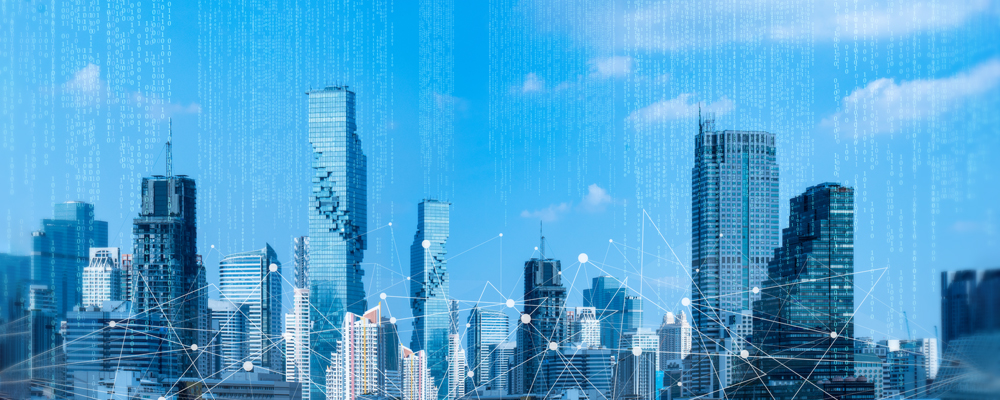
Digital Ideas vs. Implementation Approaching a Second Stage
The Covid-19 pandemic has entailed wide-ranging changes, not just in the medical field but also in terms of security and safety, work styles, learning styles, and the like. These changes are especially prominent when it comes to the use of digital technology. Many people find themselves placed in a situation in which they have no choice but to use teleworking, teleconferencing, remote learning, and the like, which were previously only used by a subsection of people and companies. As a result, while coming in an entirely unexpected form, this has brought about major advancement throughout Japan of the promotion of experience and use of digital technology.
From the perspective of digitalization, we must take an optimistic view of the Covid-19 pandemic, given that it has led to awareness of the convenience, high productivity, and flexibility of digital technology being shared broadly throughout society. Even if the global pandemic comes to an end, it is unlikely that the new change in the use of digital technology will be abandoned, and in that sense I believe the Covid-19 pandemic is a historic turning point towards a digitalized society.
Global tide of digitalization in the wake of the Covid-19 pandemic
While digital technology would be expected to have the same impact on all countries around the world, in this instance we have seen major discrepancies in efforts, effects, and speediness depending on the country. Some representative examples of digital technology being leveraged as a countermeasure to Covid-19 include Taiwan’s swift use of smartphones in response to mask shortages, smartphone systems implemented in countries like Singapore for contact management and alerting following people’s movement, and Google’s visualization of people’s movement. One thing that has drawn attention is that there are multiple countries in Asia that have achieved remarkable responses and swift responses. In particular, China’s spearheading efforts in terms of remote learning, provision of infection-related information, and automation of tracing people who need to be monitored have drawn attention in terms of their scale, speed, and “decisiveness”.
Many people say that China’s efforts can be explained in the same context as its front-running introduction of electronic money, personal credit information, smart cities and unmanned stores, and 5G. China’s approach can be characterized in that the government displayed strong leadership, that the speed of introduction was rapid, and that the technologies were introduced with decisive resolve even in the face of deficiencies and problems were stamped out later on. Considering the differences in the state of the country, the introduction of digital technology into society in the same manner as China would be difficult in Japan, as well as in advanced countries in Europe and the Americas. Nonetheless, in the EU, presently more and more people have come to think that new protocols for times of emergency are needed in parallel with protocols for normal times, as seen in the direction being taken in formulation of Covid-19-related location information guidelines, which assume more thorough data collection than was conventionally carried out. Further, we cannot ignore the possibility that even when the Covid-19 pandemic comes to an end, these new emergency protocols may live on in economic and social policies in normal times.
Towards advancement of digitalization in Japan
The measures for Covid-19 are expected stay even after the pandemic. These measures include the use of personal numbers for income and other forms of compensation, the use of electronic money in dispensing subsidies (we cannot disregard the waste and time loss involved in local government bodies individually handling cash payouts), the ascertainment of location information using mobile telephones in relation to routes of contact with infected people (though there is much dissent on this), and the introduction of supplemental remote learning systems in school education. With all of these, we must prioritize improving digital literacy among users and grappling with the digital divide.
Further, one thing we were able to reaffirm through Japan’s overall efforts in terms of measures to prevent the spread of Covid-19 is the importance of “implementation”, or to use a stronger expression, the need for “reckless courage”. The accumulation of factors like endless consideration of rare cases in the name of “not leaving anyone behind”, delays in adopting electronic money on the grounds that “elderly people don’t own smartphones”, and refusal to acquire a personal number because “it just seems scary somehow” are obstacles to advancement of society overall and assorted forms of recovery after handling the crisis in Japan, which suffers from human resource shortages due to the aging population but is also behind in its acceptance of foreign labor.
Even if Japanese society is structured in such a way that it is difficult to increase digital literacy because of the aging society, how about moving forward with immediate issuance of personal numbers, electronic money options for paying taxes and other public charges, and the option of using smartphones for various public applications even just among the younger generation, which uses smartphones in daily life, and reflecting the improvement in productivity in a preferential tax system? In parallel to this, those who insist on sticking to conventional analog work and inefficiency can bear the assorted losses attendant to the uneconomical nature of these methods.
We must advance Japan’s digitalization with reckless courage, without fearing divisions in society. Similar measures should be advanced in privacy-sensitive services like measuring contact with infected people by means of smartphone GPS or Bluetooth. A mechanism for rewarding contributions to society through reduced medical copayments or the like, that is, a system for properly rewarding people who have adapted to digital technology and thereby contributed to the security and safety of society, is advisable.
Profile
-
Kotaro Kuwazu
* Organization names and job titles may differ from the current version.